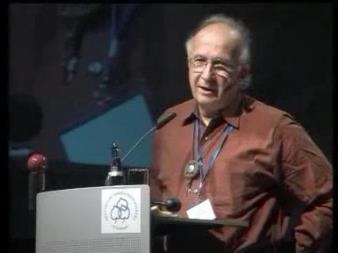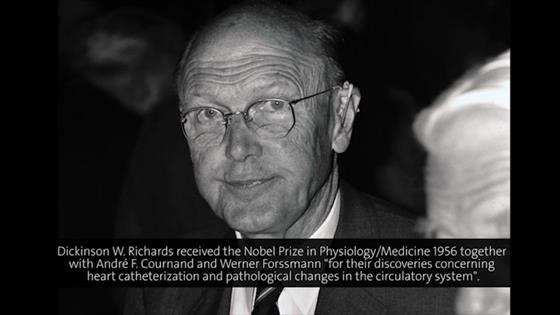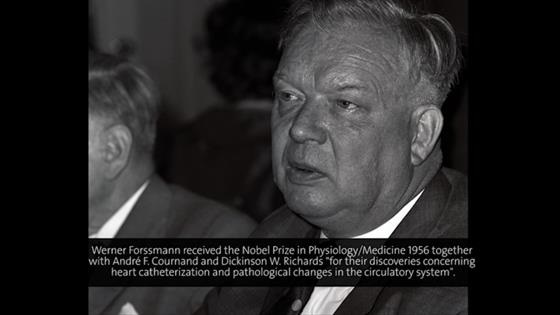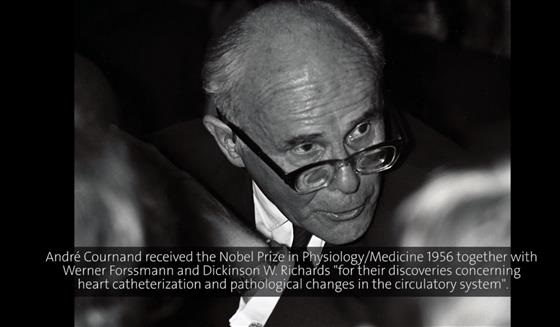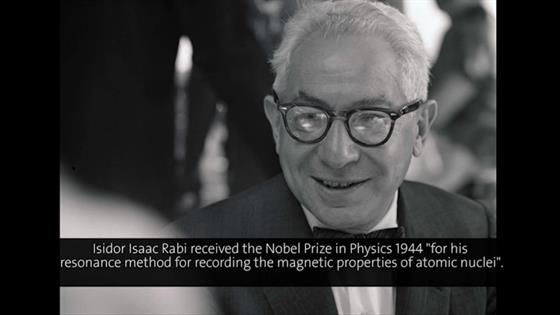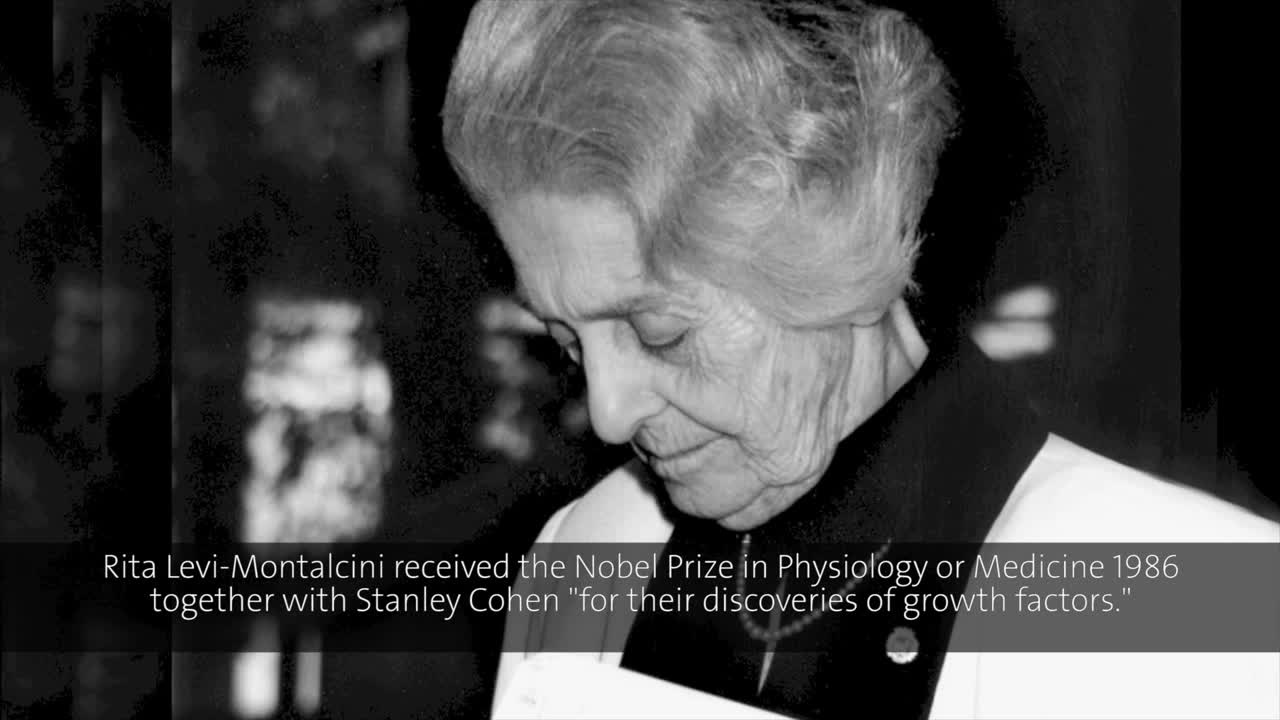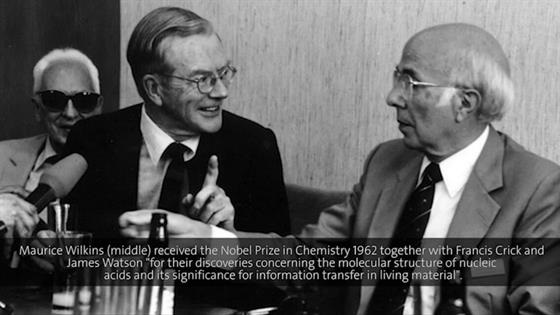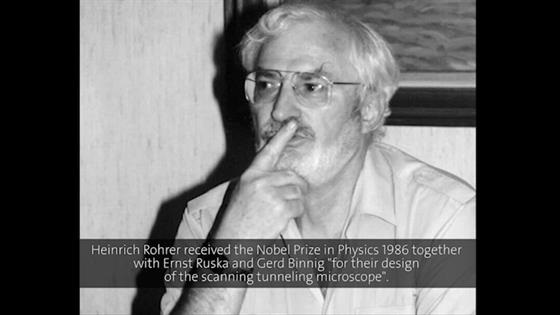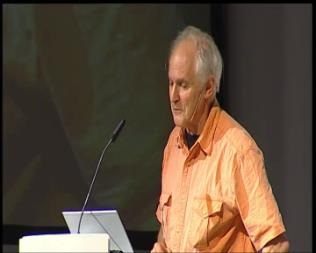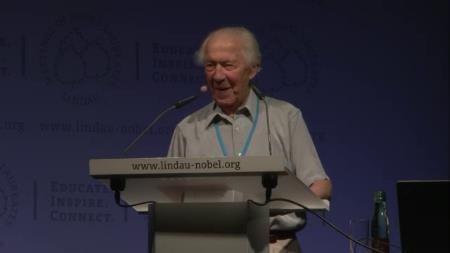Science, Ethics and Society

by Joachim Pietzsch
“What can I know? What ought I to do? What may I hope?” These are the three famous questions in which, according to the German philosopher Immanuel Kant, the whole interest of reason is centered[1]. At the beginning of the 21st century, the second of these questions, formulated in the era of Enlightenment, appears to be both the most urgent and important one for humankind to answer, if it does not want to bury its hopes for happiness or even its survival forever. We may well put this question into plural: What ought we to do? To seriously deal with this basic ethical question is especially important for scientists. They have transformed the world since the 18th century and made it - on average - a more comfortable place to live in, albeit accompanied by dangerous interventions into the great cycles of the planet. How shall they conduct themselves to help build a sustainable future? Obviously, the grand challenges that lie ahead need to be addressed in the global context. “The Lindau Meetings offer a perfect platform for just such an approach with discussion taking place between generations, cultures and religions”, remarked Roman Herzog, the former President of the Federal Republic of Germany.[2] Considerations on the complex interplay between science and society and on the ethics of science are an integral part of the discussions on this platform.
“An Ethical Perspective must be Taught and Nurtured”
The link between ethics and science is rooted far back in the history of humankind, as Roald Hoffmann pointed out in his Lindau lecture in 2006. Hoffmann has experienced evil and good more intensively than most other Nobel Laureates. In his Polish home town, once inhabited by 12,000 people, he was “one of perhaps five children who survived” the Holocaust, hidden in the unlit attic of a schoolhouse for 15 months. “Among those who didn’t was my father, three of four grandparents, and many aunts, uncles and cousins. We survived. How? By chance. By political awareness. Through the unimaginably courageous acts of good people.”[3] Ethical questions remain of existential importance for Hoffmann, who won a Nobel Prize in Chemistry in 1981. As human beings, Hoffmann emphasizes, “we are sentenced by our nature to create. But we do have a choice, to fashion this world in consonance with the best in us, or the worst (…) The reason we feel this so strongly is because of another of our creations, as deep and human as science. This is ethics (…) An ethical perspective is the obligation of every scientist, and that perspective must be taught and nurtured”.[4] What makes up science? Hoffmann asked his audience in Lindau[5] and named four aspects as one possible answer: Science is done by normal, curious people; it requires experiments; it offers an open system for the dissemination of what one finds; and it is characterized by a frequent dipping back and forth between approximations to reality and flights of imaginative fancy. Science depends on texts, talks and conversations – and therefore the practice of science can enhance moral behaviour, because „ethics is like a limb that needs exercise to function. It is not formed just by thinking, but it comes from interaction with other people“. Neither are scientists born with ethics nor is their work ethically neutral. „I believe that in any action by a human being, the instruments of this action must be accompanied by a moral judgement, and the judgement minimally is: Will the use of this instrument by me or by others hurt people or not?“ In the history of humanity, Hofmann argues, science is a relatively late social invention, and certainly younger than a human quality as fundamental as ethics. Amazingly, though, curiosity seems to be older than ethics – in fact, it caused the distinction between good and evil to emerge, as he points out in his „respectful and slightly disrespectful reading“ of Genesis 3:6.
(00:32:48 - 00:37:54)
Revisiting the Wisdom of Hippocrates
„Very, very directly to me the verse speaks of experiment“, says Hoffmann and praises Eve: „She saw, she thought and she acted (...) Eve did what had to be done, not to end but to begin a story – our story in which curious human beings have the choice every day between good and evil.“ With Eve’s transgression, paradise was lost but a world was gained.[6] Men and women learned to live together in this world, realizing that they belonged to nature, and not nature to them. Not only in health and disease, but in all their relations with nature, they were guided by physicians, who helped them to stay in balance with natural forces. In ancient Greece, the craddle of Western civilization, Hippocrates of Cos (c. 460 – c. 370 BC) was the most eminent of these physicians. Hippocrates’ boldest statement, as Dickinson Richards quoted it in his lecture on „Hippocrates and history“ in Lindau in 1969, sounds presumptuous to modern ears: „I hold that clear knowledge about nature can be obtained from medicine and from no other source.“ Richards, who shared the Nobel Prize in Medicine in 1956 with André Cournand and Werner Forssmann, believes that this is more than a „naive statement from a craftsman trying to advance the prestige of his own trade“, as he explains: „Since man and nature are one, we must seek this knowledge through the study of man and man in nature. This is medicine in its broadest sense, it is in fact humanism, also, in the broadest sense.“ In our modern age, this humanism was more and more replaced though by the conviction that nature is rather the servant than the partner of man. As a consequence of the momentous discoveries and revolutions in the realm of science, „our friend Hippocrates lost out completely“, according to Richards’ historical account:
(00:27:48 - 00:32:06)
Humankind’s hope that it would be able to regain paradise by the means of science did not fulfill. On the contrary, science helped to build the highway to the disasters of the 20th century. Shouldn’t we better hope for a resurgence of the ideals of Hippocratic medicine, if we want to survive? asks Richards. Do we not have to find our way back to a new humanism? Similar questions are put forward by his co-laureates Cournand and Forssmann, who frequently spoke about ethical issues when they lectured in Lindau, six and seven times, respectively.
The Loss of Our Spiritual Centre
Referring explicitly to his profession as a medical doctor, whose exclusive obligation is to protect life, Forssmann in 1974 diagnosed mankind with having lost its „spiritual centre“. Greed for material goods and well-being governed the world, a fog of brutal egotism concealed the beneficial potential of science and technology, and instead of complementing each other to overcome this situation, science and humanities disconnected at an increasing pace. Scientists tended to display a certain hubris, neglecting the immense, world-changing power of ideas, which cannot be expressed in numbers or equations. „Or does not Karl Marx’ „Capital“ keep the whole world in suspense until today?“ We are, says Forssmann, in desperate need of philosophical and religious thinking to conquer the frenzy of power, which is caused by the success of science. Intensive educational efforts are necessary to bring the human spirit back into a healthy balance.
(00:01:58 - 00:05:37)
To form true democrats in Forssmann’s sense, who are able to place the common good above their own advantage, was a major concern of André Cournand, too, when he in 1981 - at the height of the arms’ race between East and West - considered whether there is a scientific code of ethics, which can „serve as a basis for the development of a human ethic appropriate for the management of the planeterian problems of our time“. Because scientists are „bound to their colleagues by shared tradition and by their common effort to promote scientific knowledge“ and because they increasingly become aware of their social responsibility, they can foster mutual understanding between nations and help to distribute the fruits of knowledge in an equitable fashion[7]. To whom should science adress itself to promote its ideals „of intellectual honesty, tolerance, objectivity, disinterestedness and submission to a communal order“? asks Cournand. He bases his answer on two principle creators of modern science, Francis Bacon and René Descartes.
(00:20:38 - 00:24:10)
Science as a Bond Between Nations
„Men’s true worth lies in his ability to surpass his highest achievements“, Cournand quotes the French poet Paul Valéry to express his optimism that scientists will be able to live up to the stretch goals he formulates for their ethical conduct. Even more optimistic was Isaac Rabi, the father of nuclear magnetic resonance (NMR) who won the Nobel Prize in Physics in 1944, when he spoke in Lindau in 1973 about science as a bond between nations and described his involvement in organizing and conducting the International Conference on the Peaceful Uses of Atomic Energy, held in Geneva in August 1955, not only in his eyes „perhaps the most important diplomatic event in the fifties“, which lead to the foundation of the International Atomic Energy Agency two years later.[8]
(00:12:55 - 00:16:43)
Science is not just a profession or a technique, Rabi stresses in his talk, much more than that it’s a proof that the human spirit is universal. The physicist’s opinion partly differs from and partly complies with the physicians’ opinions we heard of before when Rabi remarks: „I think that it will turn out that science will be the highest culture of all when properly understood and the greatest expression of the human spirit. Perhaps we can develop it in such a direction that to misuse science is a sin in the religious sense and perhaps punishable as such. We have no other form that’s common to humanity which would serve to develop a goal of human cultural evolution that is comparable to science.“
A Decalogue of Human Duties
Undoubtedly, the development of a world community of science will help to counteract the handicaps that derive from nationalism and facilitate the solution of vital global problems – and international conferences of scientists on ethical issues may help in this regard. An important step towards this objective was initiated by Roger Sperry (Nobel Prize in Physiology or Medicine in 1981) and Rita-Levi Montalcini (Nobel Prize in Physiology or Medicine in 1986). In 1972, Sperry had published an article on „Science and the problem of values“[9], in which he stated „that the world we live in is driven not solely by mindless physical forces but, more crucially, by subjective human values. Human values become the underlying key to world change“. Sperry expressed the wish that „science becomes a source and arbiter of belief systems at the highest level“. 20 years later, in 1992, a conference at the University of Trieste, organized by Sperry’s long-term friend and colleague Levi-Montalcini, took up his impulse and worked out a draft version of „The Magna Charta of human duties“. The final version, entitled „A Declaration of Human Duties“ was agreed upon in 1994. It was meant to be a corollary to the United Nation’s Declaration of Human Rights and sent to the UN for review and consideration.[10] When Rita Levi-Montalcini came to Lindau in 1993, she dedicated her talk to introducing „The Magna Charta of Duties“. She asked her young audience to „take action“ and come to the follow-up conference in Trieste in November of that year. After heaving read long passages from Sperry’s article, she finally presented the decalogue of duties every human being and every scientist should fulfil to maintain the quality of life on this earth:
(00:28:06 - 00:44:29)
Under Pressure: Tempted to Rationalize Evil Deeds
The code of ethics and shared responsibilities that Levi-Montalcini presents is impressive – but is it practicable? Doesn’t it contain rules of conduct we may reach out for without ever having a chance to adhere to them? Maurice Wilkins was skeptical at least about the possibilities of realizing the „ideals of science and medicine“. When the physicist, who had been a colleague of Rosalind Franklin and shared the Nobel Prize in Physiology or Medicine with Francis Crick and James Watson in 1962, lectured about this topic in Lindau in 1987, he partly deconstructed „the myth of the scientist who struggles to obtain truth and to overcome ignorance and superstition and of the doctor who struggles to restore health and save life“. On one hand, Wilkins whole-heartedly appreciates the expectation „that the scientist ought to be honest, unprejudiced, open-minded, uninfluenced by self-interest, even they say, scientists ought to have humility“ and refers to many heroic deeds of scientists. On the other hand, he extensively elaborates on how endangered scientists are to exert and justify horrible deeds under the pressure of governments and states, „in whatever part of the world that is – human beings are basically the same in all countries“. He specifically mentions the preparation of Anthrax bombs by the Churchill government, the fatal vivisections on American pilots by the Japanese, and the cruel experiments of German doctors in the concentration camps of the Nazi regime. When pressed by political power, scientists obviously tend to overcome their moral feelings by rationalizing evil deeds, Wilkins argues.
Necessity to Know or Need to Glitter?
When Heinrich Rohrer, who shared the Nobel Prize in Physics in 1986 with Ernst Ruska and Gerd Binnig, came to Lindau in 1991, to give his talk „Science – part of our future“, he reflected on the pressure under which science is put by the interests of different stakeholders in society, economy and politics, and emphasized how important it will be for scientists to come to a mutual and independent understanding of their profession to safeguard the future of science.
(00:00:49 - 00:04:33)
An aspect of modern science that Rohrer critizises sharply is its „poor signal-to-noise ratio“. The rising flood of scientific papers, he says, is not proportional to the new knowledge it carries with it. It rather reflects the crisis of a system, in whose evaluation procedures quantity outweighs quality, and in which vanity rather than true novelty has begun to play the key role: „The necessity to know has been replaced by the need to glitter.“ Proposing a more modest approach to the communication of innovation, Rohrer reminds his audience of the foremost privilege of scientists: „We are those who may make a work out of their dreams and who are allowed to dream while working.“ Especially young scientists should by guided by their own ideas.[11] Research funding therefore should foster and stimulate original ideas again rather than just planning and regulating research.
Scientific Integrity Requires „the Freedom to Doubt“
Time and again, Harold Kroto, winner of a Nobel Prize in Chemistry for the discovery of fullerenes in 1996 and a frequent participant of the Lindau Meetings, has endorsed this demand. Breakthrough innovations more often than not occur in fields, which are not on the radar screen of grant giving institutions. „Stick to the one thing you are interested in“, Kroto encourages young scientists. A prerequisite for this integrity is the „freedom to doubt“, as Kroto pointed out in his lecture on „Science, Society and Sustainability“ in 2009:
(00:36:29 - 00:38:32)
Krotos reverence for Joseph Rotblat, who was awarded with the Nobel Peace Prize jointly with the Pugwash Conferences on Science and World Affairs in 1995, as „the greatest man I ever knew personally“, is important. Although Rotblat never attended a Lindau Meeting, this reverence justifies to quote some of his thoughts on science and ethics in our context: „The establishment of an ethical code of conduct for scientists is an idea whose time has come. An ethical code of conduct for physicians has been in existence for nearly two and a half millennia, since the days of Hippocrates. In those days - as still today - the life of the patient was literally in the hands of the medic, and it was essential to ensure that he would wield his power responsibly, the care of the patient being his foremost duty. Hence the Hippocratic Oath taken by doctors when they qualify. Nowadays, science can be said to have acquired a somewhat similar role in relation to humanity; the destiny of mankind lying in the hands of scientists. The time has thus come for some sort of Hippocratic Oath to be formulated for scientists. A solemn oath, or a pledge, taken when receiving the degree in science, would, at the least, have an important symbolic value, but it might also generate awareness and stimulate thoughts about the wider issues among young scientists.
We should also borrow from medicine another practice, of more recent origin: ethical committees to review research projects.“
Remember Your Humanity – and Transcend it?
These are both wise and arousing words. But is it enough, to just „remember our humanity“, as Rotblat called for in his Nobel lecture? Isn’t it perhaps necessary to transcend it? This is a question, 93-year-old Christian de Duve put forward in Lindau in 2011. In his amazingly inspiring talk, de Duve, one of the founding fathers of modern cell biology, who shared the 1974 Nobel Prize in Physiology or Medicine with Albert Claude and George Palade, takes an evolutionary perspective on „The future of life“ : Humans are without doubt „the most successful species“ on earth. But at what cost? De Duve’s account encompasses eight items: exhaustion of natural resources; loss of biodiversity; deforestation and desertification; climate change; energy crisis; pollution; overcrowded cities; and conflicts and wars. Yet „it is not a who, it is a a what“ that is responsible for this mess, according to de Duve. This „what“ is „natural selection“. It promotes the emergence of those individuals or groups that are best fit to survive and reproduce. In the course of millenia, it has preferred our species because of two favorable genetic traits: Intragroup selfishness and intergroup hostility. Yet natural selection is blind: It only takes care of the here and now, and is unable to look into the future. And that’s the problem: Our genes have not changed, but the world has. The same qualities that once helped our species to survive in the barely populated African savannah, today endanger its survival in an overcrowded and globalized world where all groups and cultures are interdependent. There is something wrong with human nature, de Duve says, and continues to analyse seven options to tackle this problem:
(00:22:32 - 00:38:12)
Christian de Duve presented his lecture in free speech. When he came to its conclusion, however, he preferred to read it. He wanted to avoid the risk of diluting his message: „All is not lost, but the writing is on the wall. If we don’t act soon to overcome our genetic tendency to intra-group selfishness and intergroup hostility, the future of humanity and of natural life on earth will be gravely endangered, possibly leading to total extinction under conditions that can only be visualized as apocalyptic. Here, I turn to the young people of the world in the audience. I want to tell you: My generation, our generation has made a mess of things. It’s up to you to do better. The future is in your hand. Good luck!“
Footnotes:
[1] Immanuel Kant. The Critique of pure reason, Project Gutenberg Ebook, p. 361, and, in the original German version: Theorie-Werkausgabe Immanuel Kant, Frankfurt 1968, Bd. IV, S. 677: „Alles Interesse meiner Vernunft (das spekulative sowohl, als das praktische) vereinigt sich in folgenden drei Fragen: 1. Was kann ich wissen? 2. Was soll ich tun? 3. Was darf ich hoffen?“
[2] Roman Herzog. Global impulses for the 21st century. In: Ten years foundation Lindau Nobelprize winners meetings at Lake Constance. Lindau 2010, p. 31.
[3] Roald Hoffmann. Remembering, Returning, Forgiving. International Herald Tribune, August 25, 2006.
[4] Roald Hoffmann. Ethics in Research? Hoechst Future Magazine, 1996, p. 66-69, 68.
[5] All following citations from Hoffmann’s lecture „Honesty to the singular object: Some reflections on the potential of ethics arising out of science”.
[6] As John Milton 1674 beautifully expressed it in the final verses of Paradise Lost:
„The world was all before them, where to choose their place of rest, and providence their guide: They hand in hand with wandering steps and slow, Through Eden took their solitary way.“
[7] Here Cournand refers to an interview with Bertrand Russell from 1957.
[8] „The Conference was indeed a landmark in the history of science, the first intergovernmental conference ever held to illuminate progress on a new technology“, David Fischer writes on p. 31 of his book „The history of the International Atomic Energy Agency. The first forty years“, accessible on http://www-pub.iaea.org/MTCD/publications/PDF/Pub1032_web.pdf
[9] Perspectives in Biology and Medicine. Autumn 1972, p. 115-130.
[10] For more details of this story, see „Roger W. Sperry“, Biogr. Mem. Fell. R. Soc. Lond. 43, 461-470 (1997).
[11] „My final wish is that you will belong to those scientists who are paid for what they are doing and not those who do what they are paid for. Then you forge the future with your visions, passion, and devotion and the presence simply fades away“, Heinrich Rohrer (1933-2013) said in his „Five wishes for young scientists“, which he first expressed at a meeting in Stockholm in 2012. This legacy is documented in full length on page 23 of the Annual Report 2013 of the Lindau Nobel Laureate Meetings.

